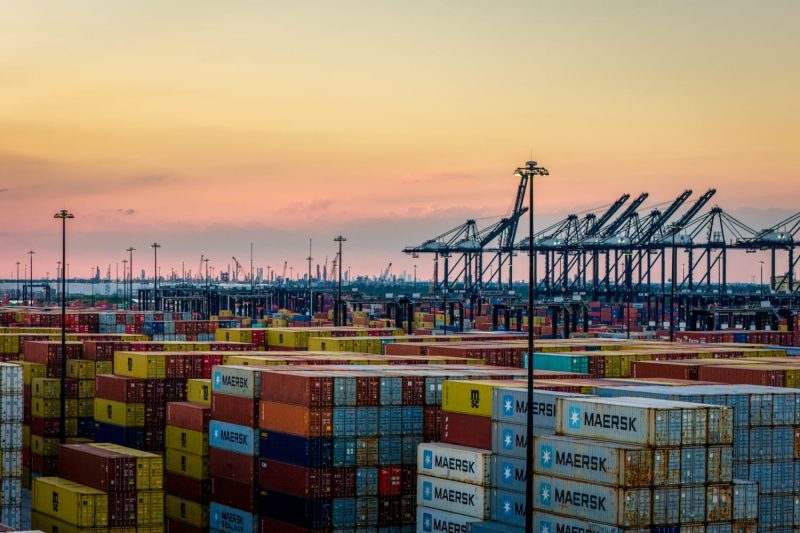September 23, 2024
East Coast Ports at Risk: Impending Maritime Strike Looms Large
 The threat of a major maritime strike along the East Coast poses serious implications for the smooth operations of ports in the region. As labor unions negotiate for better pay, benefits, and working conditions, the potential strike could disrupt a wide range of industries that rely on the shipping and transportation of goods. With ports serving as crucial hubs for international trade and commerce, any prolonged disruption could have far-reaching economic consequences.
The East Coast ports play a vital role in the supply chain, facilitating the movement of goods from manufacturers to retailers and consumers across the country. A strike in these ports would lead to significant delays in shipments, affecting businesses that depend on timely delivery of goods to meet customer demands. Furthermore, the uncertainty created by a potential strike could cause disruptions in production schedules, leading to inventory shortages and increased costs for businesses.
In addition to the immediate impact on businesses, a major maritime strike could also have broader economic consequences for the region. The East Coast ports contribute significantly to the local economy, providing jobs and supporting a wide range of industries. A protracted strike could result in job losses, decreased revenue for businesses, and a slowdown in economic growth.
Moreover, the ripple effects of a strike would not be limited to the East Coast region. As goods are shipped to and from ports along the East Coast, disruptions in one port could cause congestion and delays at other ports across the country. This domino effect could lead to logistic challenges and increased costs for businesses that rely on a smooth flow of goods through the supply chain.
To mitigate the potential impacts of a maritime strike, it is imperative for all stakeholders – including labor unions, port authorities, and business owners – to engage in constructive dialogue and negotiations. Finding common ground and reaching a mutually beneficial agreement is essential to maintaining the efficient operation of ports and ensuring the continued flow of goods through the supply chain.
Ultimately, the threat of a major maritime strike along the East Coast serves as a stark reminder of the interconnected nature of the global economy. As stakeholders work towards resolving their differences and finding sustainable solutions, it is crucial to prioritize collaboration and cooperation to safeguard the resilience and reliability of the ports that play a crucial role in facilitating international trade and commerce.
The threat of a major maritime strike along the East Coast poses serious implications for the smooth operations of ports in the region. As labor unions negotiate for better pay, benefits, and working conditions, the potential strike could disrupt a wide range of industries that rely on the shipping and transportation of goods. With ports serving as crucial hubs for international trade and commerce, any prolonged disruption could have far-reaching economic consequences.
The East Coast ports play a vital role in the supply chain, facilitating the movement of goods from manufacturers to retailers and consumers across the country. A strike in these ports would lead to significant delays in shipments, affecting businesses that depend on timely delivery of goods to meet customer demands. Furthermore, the uncertainty created by a potential strike could cause disruptions in production schedules, leading to inventory shortages and increased costs for businesses.
In addition to the immediate impact on businesses, a major maritime strike could also have broader economic consequences for the region. The East Coast ports contribute significantly to the local economy, providing jobs and supporting a wide range of industries. A protracted strike could result in job losses, decreased revenue for businesses, and a slowdown in economic growth.
Moreover, the ripple effects of a strike would not be limited to the East Coast region. As goods are shipped to and from ports along the East Coast, disruptions in one port could cause congestion and delays at other ports across the country. This domino effect could lead to logistic challenges and increased costs for businesses that rely on a smooth flow of goods through the supply chain.
To mitigate the potential impacts of a maritime strike, it is imperative for all stakeholders – including labor unions, port authorities, and business owners – to engage in constructive dialogue and negotiations. Finding common ground and reaching a mutually beneficial agreement is essential to maintaining the efficient operation of ports and ensuring the continued flow of goods through the supply chain.
Ultimately, the threat of a major maritime strike along the East Coast serves as a stark reminder of the interconnected nature of the global economy. As stakeholders work towards resolving their differences and finding sustainable solutions, it is crucial to prioritize collaboration and cooperation to safeguard the resilience and reliability of the ports that play a crucial role in facilitating international trade and commerce.
If you would like to delve into the world of investment topics , go to our partner project Wall Street Wizardry


